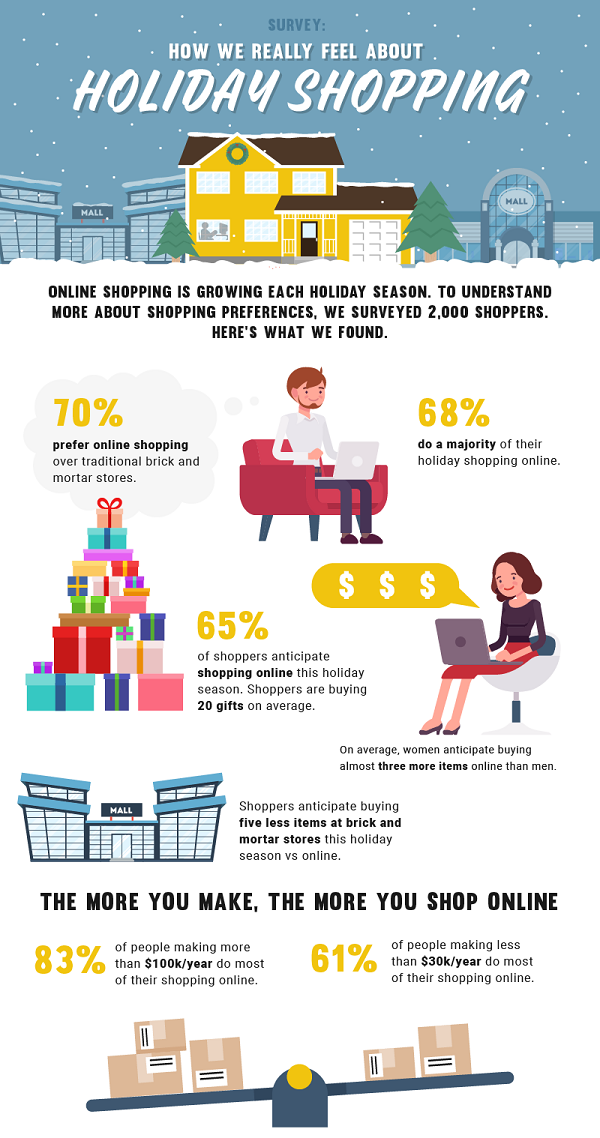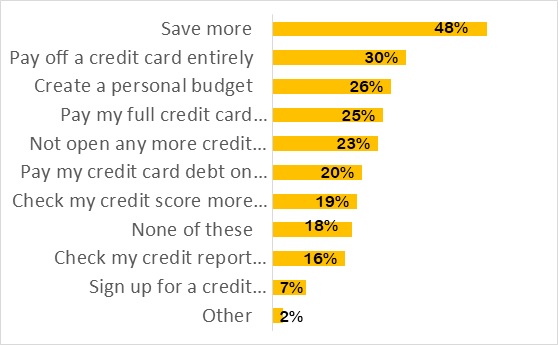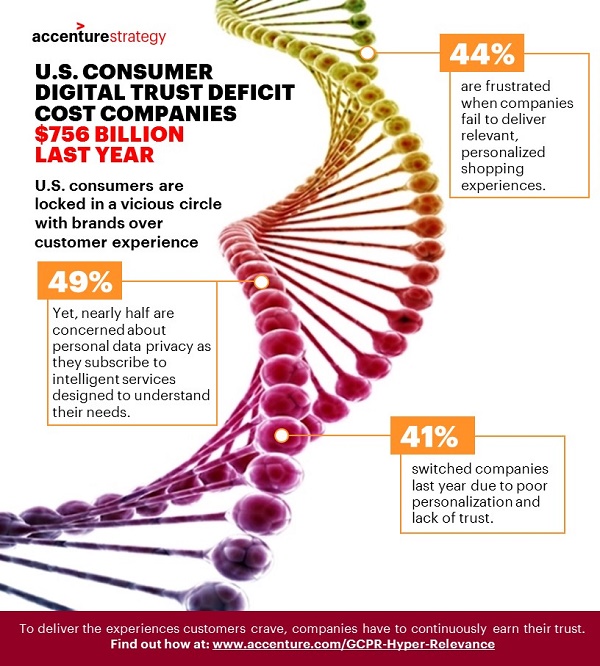12 Things Entrepreneurs Need to Know
By Rieva Lesonsky
Happy Holidays!
Things Entrepreneurs Need to Know is taking a break for the holidays. Look for the next edition January 8th. Have a wonderful holiday.
1—Holiday Shopping
Even though this is the last week before Christmas, new survey data from Schorr Packaging (courtesy of Matt Zajechowski of Digital Third Coast) shows 45% of consumers leave their holiday shopping to the last week before the holidays. Hope you’re ready!
Check out the details in the infographic below.

2—Consumer Spending
A survey from Experian shows that consumers are stressed about how much they’ve spent this holiday, with 60% saying holiday shopping has put a strain on finances and 58% feeling stressed about their finances.
This might affect spending in the New Year. In fact, the survey shows consumers are resolving to save more in 2018.

3—Watch Out for Scammers
Also from Experian is this report about how the holidays are a popular time of year for scammers. Be aware!
4—Personalized Shopping
Accenture Strategy has released new insights from its latest Global Consumer Pulse Research showing consumers want to “have their cake and eat it too” when it comes to receiving more relevant, personalized shopping experiences.
Essentially consumers get frustrated when businesses don’t meet their expectations, but they worry about revealing too much personal information, particularly as more businesses embrace using artificial intelligence and machine learning to better understand and anticipate consumer needs. Accenture says the conundrum is “without deeper customer insight, companies can’t deliver the experiences [consumers] crave.”
There are more details in the infographic below.

5—51 Amazing Facts About WordPress
If you have a blog (and most small businesses should) you are most likely familiar with WordPress. But I bet there’s a lot you don’t know.
To learn more, check out the infographic below from Websitebuilder.

6—Why Shoppers Buy Online
A report from Clutch, a leading research and reviews platform for business services, underscores something I’ve believed for a while now about online marketplaces. The report shows nearly 70% of online shoppers prefer to purchase through Amazon, Etsy, eBay or other online marketplaces.
The report shows your website “serves as your online hub, solidifying branding, and building valuable customer loyalty.” But the best strategy is to have a “multi-channel selling strategy that combines selling through an online marketplace” and your own website.
But, to do this, you have to stay on top of orders from multiple sources, which can be challenging. Clutch says, “To manage this, some businesses’ website builders have back-end features that collect and organize orders from multiple sources.”
The main reason consumers shop at online marketplaces is to compare products and find the best deal. Their priorities are to save money and time. The report shows 33% of shoppers prefer the convenience of shopping online compared to brick-and-mortar stores, and 37% say discounts or coupons are the main reason they purchase through a small business website.
The survey concludes, “that as Amazon and other online marketplaces continue to shape online shoppers’ expectations and desires, small businesses will increasingly need to turn to a multi-channel approach to drive sales.”

7—Cash is the Lifeblood of Your Business
Guest post by Fred Parrish, Founder and Chief Executive Officer of The Profit Experts™. He’s often called “America’s Small Business CFO.” Parrish is the author of The Profit Mentality and is co-writing a book with Michael E. Gerber, author of the E-Myth series.
Research shows poor cash-flow management is to blame for as many as 82% of startup and small business failures. Cash and profit are not interchangeable. Since companies can’t actually “spend” profits, they must have sufficient cash available to fund operations until conversion occurs. Here’s why generating cash is the most important aspect of profit management, and why converting profit into cash in the shortest possible time should be a goal of every organization.
Principle 1: Cash is the Lifeblood of Your Business. Since there is nothing tangible returned by profit alone, the logical conclusion is that without cash conversion there is no REAL profit.
Principle 2: Generating cash is the most important aspect of profit management and conversion of profit into cash in the shortest possible time frame should be a goal of every organization.
Principle 3: Profitability and cash flow are inextricably linked. You must have profits to produce cash and you must have cash to produce profits. The cycle cannot be broken indefinitely without seriously negative results. Even though it is possible to have a scenario where a company is operating at breakeven or with losses and also having a positive cash flow, it is a short-term condition that cannot be sustained indefinitely.
Bottom line—there is no free lunch—there is cash required to purchase each item and it will have to come from somewhere (either from operations or other outside funding). Although the situation is somewhat fluid, the reality never changes; you must produce long-term profits to survive.
8—7 Toxic Words or Phrases to Avoid in the Workplace
Guest post by Crystal Barnett, senior human resource specialist, Insperity.
Editor’s Note: Words matter. And while most people in the workplace (especially today) try to avoid making comments that can get them in trouble or inflame colleagues, there are some words or phrases, that seem innocent, but could ultimately detract from those saying them.
- “Honestly.” The word “honestly” is by no means an offensive word. However, the thoughts that come afterwards should be carefully considered before being spoken. Telling a trusted boss how one truly feels is expected and encouraged at many companies. However, in some organizations, giving an unvarnished assessment can be dangerous if done without careful consideration beforehand. For example, attempts to be honest while criticizing another team member’s work in a public setting can not only damage relationships, but it can also create the impression that a worker is willing to promote his or her own efforts by attacking others.
- “That’s not fair.” The concept of fairness is taught to most children. However, in the workplace, as in life, things are not always fair. While raising issues of fairness are acceptable in many work settings, the time, place and audience should be carefully considered beforehand.
- “I.” While giving credit where credit is due, employees should reinforce teamwork and try not to highlight personal efforts over the work of others.
- “This is the way we’ve always done it here.” Newer employees proposing alternative approaches for solving workplace problems have likely heard this phrase before. While all new ideas are not good ideas, failing to consider alternative approaches may mean the company is missing out on new opportunities for improvement.
- “Yeah, but…” This phrase often follows an instruction or request from a supervisor or manager. Asking clarifying questions or proactively identifying issues is not a bad thing. However, doing so in a negative sounding way suggests an unwillingness to follow instruction or worse yet, a challenge to a leader’s authority. Often, simply avoiding “Yeah but…” is a better way to go.
- “Just.” “Just” can be a loaded word in some contexts. For example, if a boss says to an employee “I just want you to finish those reports before the end of the week,” the comment often sounds highly negative on the receiving end. It can also convey the impression that the listener is being difficult or combative. A better approach might be to say, “Be sure to get me those reports by the end of the week.”
- “Yes.” In many scenarios, saying yes is a good thing. But not always. Some top-performers have problems saying no and therefore always say yes when asked to perform additional work. This may result in a lower quality product, simply because the employee in question is stretched too thin. In addition, the dangers of burnout should be considered. In companies where the hardest working employees are “rewarded” with the greatest amount of work, saying “yes” at all times can have negative impacts and end up hiring the employee in the end.
Quick Links
9—Going Digital
Behalf, an New York City-based FinTech, has released a new B2B study with revealing results. According to decision makers across Behalf’s partner network, nearly 70% of B2B players have prioritized growing online sales as a top business objective. Behalf says this is a seismic shift for the B2B segment, whose sales force-centric business model has been rocked by the digital marketplace era.
10—Free Access to 7 Million Scholarships
TFS Scholarships (TFS), the most comprehensive online resource for higher education funding, is providing free access to scholarship information. Through its website, TFS connects students to more than 7 million scholarships representing more than $41 billion in aid.
The majority of the scholarship opportunities featured on the TFS Scholarships website come directly from colleges and universities, rather than solely from competitive national pools—thereby increasing the chances of finding scholarships that are the best fit for aspiring and current undergraduate, graduate and professional students. Each month TFS adds more than 5,000 new scholarships to its database in an effort to stay current with national scholarship growth rates—maximizing the number of opportunities students have to earn funding for their education.
The TFS website also provides financial aid information, resources about federal and private student loan programs, and a Career Aptitude Quiz that helps students identify the degrees and professions that best fit their skills.
For more information about Tuition Funding Sources, go here.
11—Winner Announced
Independent We Stand just announced the winner of the Independent Small Business of the Year award or Indie Award: With nearly 90 years of providing expert advice and quality service to customers and an unshakable commitment to community events and organizations, the 2017 Indie Award recipient is Carr Hardware. Carr Hardware committed to donating its $5,000 cash award to a park revitalization project in Pittsfield, Mass., home to the store’s main branch.
Prizes include:
- $5,000 grand prize
- $1,000 for the winner’s favorite small business group
- $1,000STIHL equipment certificate.
- 12-month subscription and three months of free managed marketing services fromSnapRetail (valued at $1,696)
- Branding, advertising and public relations makeover from independent advertising agency —The Meridian Group
- 3 days/2 nights retreat and branding workshop in Virginia Beach, VA
- Plaque to display at winner’s business
- Public relations and social media recognition
Cool Tools
12—Instant Purchase
Magento Commerce recently today announced the availability of Instant Purchase in its newest release, becoming the first commerce platform to deliver the functionality since the Amazon 1-Click patent expired in September. The new capability enables merchants to drive higher conversion rates and repeat purchases for returning customers with a streamlined checkout process.
“The majority of shoppers abandon purchases simply because the checkout process takes too long. The numbers show even requiring customers to enter their credit card information or a shipping address deters from following through with their purchases, especially if they’re shopping on a mobile device,” says Leslie Hand Vice President of IDC Retail Insights. “Magento released the Instant Purchase feature as a component of the Magento Commerce cloud solution as soon as Amazon’s patent expired a few months ago, showing the platform’s ability to rapidly innovate.”
According to the Baymard Institute, the average global cart abandonment rate in 2016 was 70%, and it’s even higher among shoppers on mobile devices.
You can find more information here.







